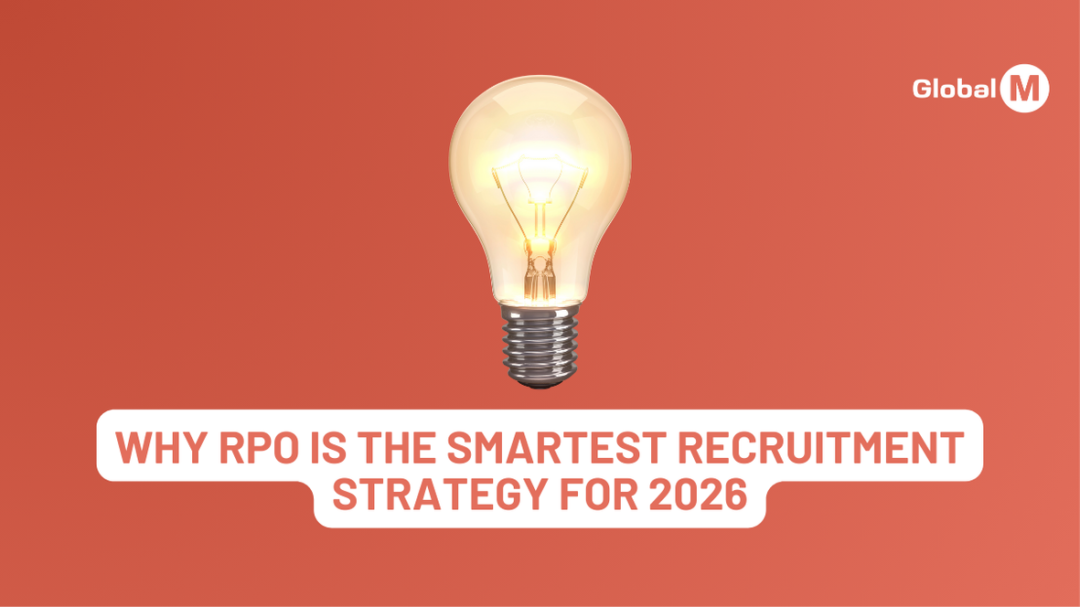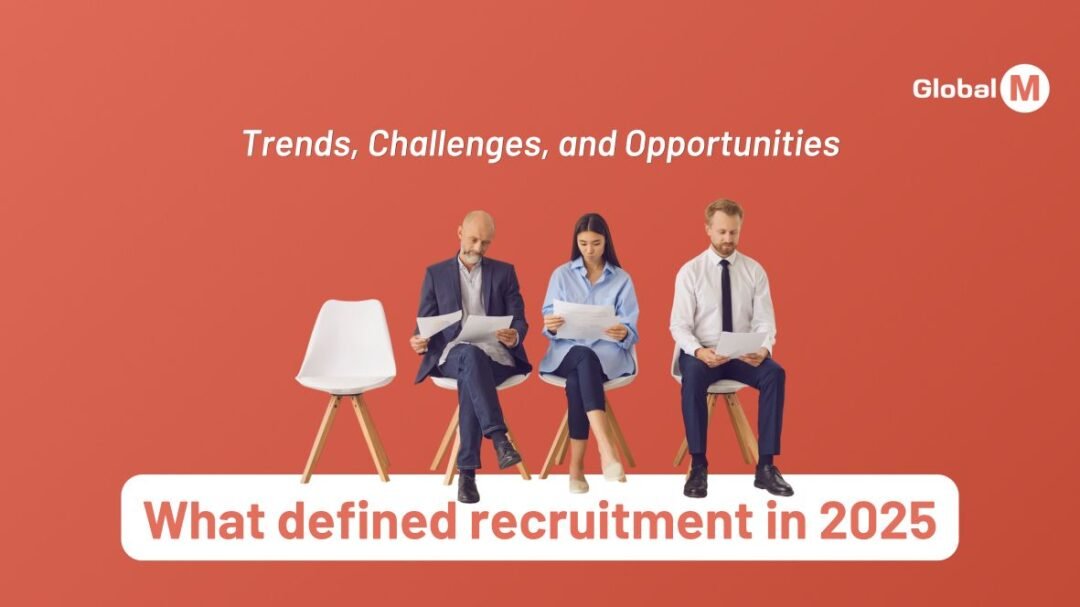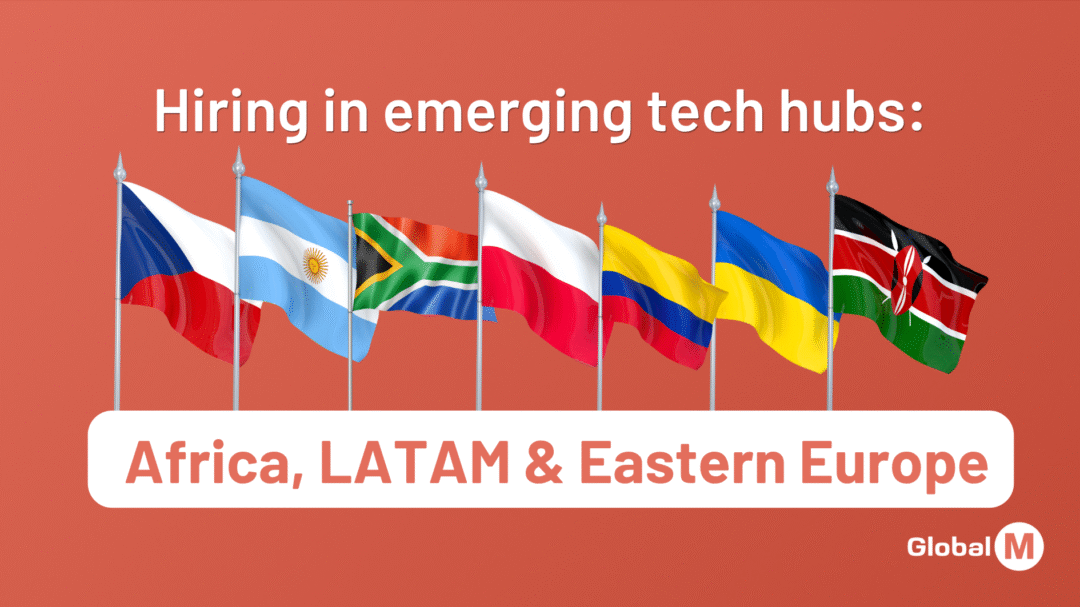
The Global M Blog
The real cost of hiring tech talent in Spain: salaries, competition, and time-to-hire in 2025
Spain has rapidly become one of Europe’s most attractive hubs for software engineering and digital talent. With strong ecosystems in Barcelona, Madrid, Valencia, and Málaga, international companies are increasingly turning to Spain to build engineering teams that are both cost-effective and high quality.
But how much does it really cost to hire tech roles in Spain in 2025, and how competitive is the market?
As a recruitment consultancy with deep experience hiring tech teams for startups and scale-ups across Europe, including Spain, Global M has gathered real market insights to help companies plan and scale their teams efficiently.
1. Salary benchmarks for tech roles in Spain (2025)
Salaries in Spain remain significantly more affordable than in the UK, Germany, or the Netherlands, while offering access to high-quality engineers with experience in international teams.
Here are average salary ranges for key tech roles:
Software Engineering
-
Mid-level Software Engineer: €40,000–€55,000
-
Senior Software Engineer: €55,000–€75,000
-
Tech Lead / Engineering Manager: €75,000–€95,000+
Data & AI
-
Data Analyst: €35,000–€50,000
-
Data Engineer: €50,000–€70,000
-
Machine Learning Engineer: €60,000–€85,000
Product & Design
-
Product Manager: €50,000–€75,000
-
UX/UI Designer: €35,000–€55,000
DevOps & Cloud
-
DevOps Engineer: €55,000–€80,000
-
Cloud Architect: €75,000–€100,000+
QA & Automation
-
QA Engineer: €35,000–€50,000
-
QA Automation: €45,000–€60,000
Compared to the UK, companies typically save 25–40% on salaries while still hiring strong international talent—especially in Barcelona, which is home to many global tech teams.
2. How competitive is the tech talent market in Spain?
While salaries remain attractive, competition for top engineers is high, particularly in major cities.
Communities with the strongest competition:
-
Barcelona (strong international tech hub, many scale-ups)
-
Madrid (corporate + startup demand)
-
Valencia and Málaga (fast-growing hubs, salary increases year-on-year)
What candidates expect:
-
Hybrid work (2–3 days per week in office) is the new standard
-
Projects with real technical complexity
-
Clear career progression
-
Competitive salary (aligned with market data above)
-
Transparent hiring processes
Big hiring challenges companies experience:
-
Candidates juggling multiple offers
-
Counteroffers from current employers
-
Losing candidates due to slow processes
This is where an efficient talent partner becomes essential to keeping the pipeline moving and maintaining candidate engagement.
3. Time-to-hire benchmarks in Spain (2025)
Time-to-hire varies by role, seniority, and tech stack—but here are realistic averages for 2025:
Average time-to-hire:
-
Backend / Fullstack (Java, Node, Python): 4–7 weeks
-
Frontend (React, Vue): 3–6 weeks
-
Data roles: 5–8 weeks
-
DevOps / Cloud: 6–10 weeks
-
Product & Design: 4–7 weeks
The biggest delays usually happen due to:
-
Long interview processes
-
Lack of clarity on salary bands
-
Changing requirements mid-search
-
Slow feedback cycles
Companies that shorten stages and reduce technical testing typically hire 30–40% faster.
4. Additional hidden hiring costs
Beyond salaries, employers should consider:
- Employer taxes and social security. Typically 30–35% on top of gross salary (varies depending on region and type of contract).
- Internal recruitment resources. Startups often underestimate the time spent coordinating interviews, sourcing, and screening candidates.
- Turnover risk. Hiring the wrong candidate or having a long time-to-fill creates additional costs.
- Tooling & employer branding. Recruitment tools, job boards, and employer branding campaigns are often overlooked in budget planning.
5. How RPO reduces hiring costs by 25%
At Global M, we support numerous startups and scale-ups across Europe, helping them hire engineering, product, and data teams in Spain.
Our clients typically benefit from:
- 25% lower cost than traditional hiring. Because our embedded model replaces multiple agency fees.
- Faster time-to-hire. With dedicated talent partners who manage sourcing, screening, process setup, and stakeholder alignment.
- Stronger quality of hire. We help define requirements and bring top local and international candidates.
- Recruitment process optimisation. Including interview design, ATS implementation, and employer branding consulting.
This model is especially effective for companies hiring 3 or more roles or building a new tech hub in Spain.
Spain remains one of the best countries in Europe to build product and engineering teams thanks to:
- Competitive salaries
- Strong English-speaking talent
- Mature tech ecosystems
- Attractive quality of life that attracts global engineers
However, competition is increasing, meaning companies need solid processes and strong local market knowledge to hire effectively.
If you’re planning to hire tech roles in Spain in 2025, partnering with a recruitment consultancy like Global M ensures lower cost, faster hiring, and better talent outcomes.
20,000+
Active subscribers
Stay ahead of the curve in the ever-evolving world of technology recruitment. Our newsletter keeps you in the loop with the latest industry trends, providing valuable insights for both companies and job seekers.

Keep reading
More news, insights and tips







